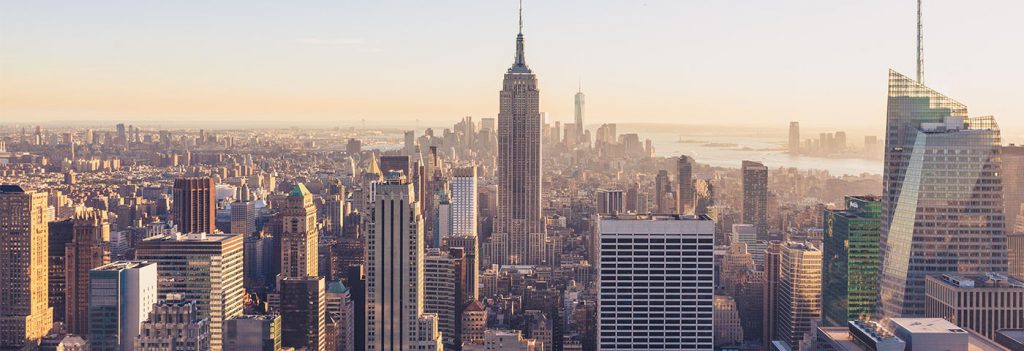Climate week NYC is the largest climate event in the world, New York City is its home, and this year’s event on 24 to 30 September is the 10th Anniversary.
Fred Dixon, President and CEO, NYC & Company tells us more about why Climate Week NYC is such a special event.
The event is organised by The Climate Group, an international non-profit organisation that brings together more than 10,000 climate change leaders from more than 40 countries. Helen Clarkson, CEO of The Climate Group said, “We are thrilled to be hosting our 10th Climate Week NYC and to appear on the world’s stage, to continue to advance climate action to the top of the global agenda.”
Mayor of NYC, Bill de Blasio said, “Here in New York, we’re taking bold action on climate. We’re divesting from fossil fuels, mandating that our largest buildings cut their emissions, and investing in electric vehicles. Through investments in resiliency and sustainability, we are building a fairer city for all.”
New York City has taken a lead on climate change during the past decade, helping cement its reputation as capital city of a responsible world. Here are some of the ways climate change is being addressed in New York City:
- Green roofs and urban farms — the Jacob K. Javits Convention Centre displays a 6.75-acre green roof, designed to absorb rainwater, attract a range of wildlife and cut the overall buildings energy use by 26%. There are plans to expand this green area, with the intention to grow produce. At the top of Brooklyn’s Barclays Centre is a 3-acre green roof, next to another positioned over its subway entrance. Brooklyn Grange is also home to bees in over 30 naturally managed; rooftop hives and operates the world’s two largest rooftop soil farms.
- The New York City Botanical Garden introduced Edible Academy in spring this year. This new three-acre building features a green roof, soar pavilion, vegetable gardens, teaching greenhouse, teaching spaces and more.
- Since 2012, Snug Harbor’s 2.5-acre Heritage Farm on Staten Island produces fresh fruits and vegetables in an environmentally sustainable manner. Following this success, in 2017 Heritage Farm staff worked with over 100 volunteers and educated over 2,280 children on sustainable farming, food sources, and plant biology.
- Park reservations and honouring horticulture — since June 2018, Central Park has become entirely car-free. This famous greenspace welcomes more than 42 million visitors a year, and now it can be enjoyed more fully.
- Other initiatives include a new generation of sustainable hotels, Roosevelt and Governor’s Island and City’s Top Attractions LEED The Way
For more information please visit nycgo.com.
